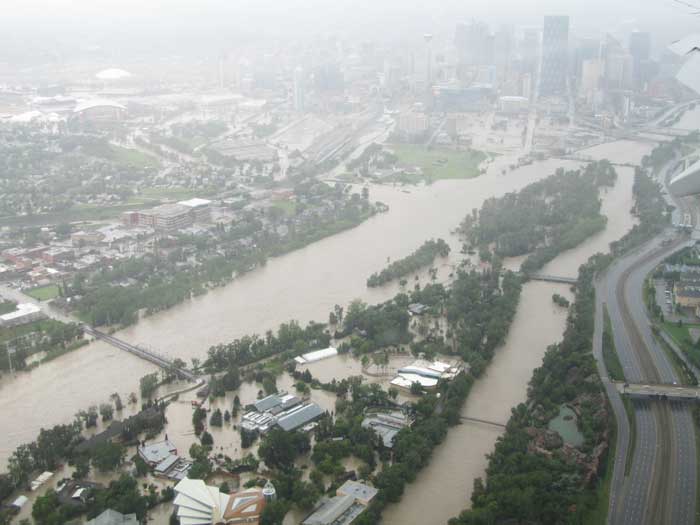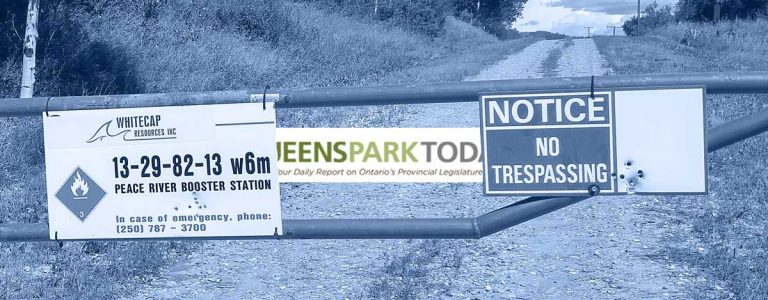Grappling with climate change, politics and the Alberta floods
It’s no small chore trying to understand climate change. We live in a society that is lacking in scientific literacy. Even those of us that have some, have little time to read and understand the many complex issues of our day. And many whose job it is to read and understand, assess and summarize the issues around climate change are doing a bad job of it.
Many news organizations are failing at it. And many writers, leaders and people in the media are failing too.
I’ll give three examples.
1. Mike Moffatt is an economist and writes about economics
On Sunday, while I was trying to understand the absence of stories in newspapers about the relation of climate change to the Alberta floods, I noticed that David Suzuki had managed to publish something in the Huffington Post. Contra Ezra Levant, I thought the piece was cautious, helpful and relevant. And I didn’t find it disrespectful in the least.
But I think it’s fair to say that Twitter was polarized on the subject. Many, many people found Suzuki’s piece disrespectful, incorrect, morbid and opportunistic. Mike Moffatt was with this crowd:
https://twitter.com/MikePMoffatt/status/348396559253245952
Moffatt dedicated, I don’t know, maybe forty tweets to David Suzuki’s piece saying a range of things, including “can we all just ignore David Suzuki,” “Problem was the *lack* of science,” “Suzuki didn’t cite any of the research RE Alberta and flooding, though a fair bit exists,” “Is it really too much to ask people to read the science before they start making pronouncements,” “He willfully ignores the probable root causes,” “he shouldn’t be writing on it because he clearly hasn’t done his research,” “take a tragedy, re-publishhing piece without looking at the evidence sounds a lot like milking to me,” and my favourite: “His HuffPo piece which was basically ‘we can’t prove flood caused by climate change but… CLIMATE CHANGE!'”1
Seriously, when I read these I understand Suzuki’s animus towards economists. But Moffat was on a roll, so he retweeted Jason van Rassel, a journalist with the Calgary Herald, who was feeling some frustration:
The next person who lectures “Alberta” or “Albertans” about climate change gets a punch in the face, OK?
And someone tried to disagree with Moffatt’s condemnation of Suzuki’s article, by posting this interesting summary of scientific research regarding the attribution of extreme weather events to anthropogenic global warming. Moffatt engaged them for a while and then accused them of being a troll.
@Bigcitylib2 Seriously, you’re trolling at this point. The piece is very, very clear.
A lot of other commentators seemed to agree with Moffatt’s general drift: Dan Gardner participated, saying something that was mostly true, but, in my opinion, a little rhetorical and perhaps obfuscating:
https://twitter.com/dgardner/status/348787466217603072
Actually, this claim isn’t, strictly speaking, true. A simple counterexample is when the probability of something changes from zero to one hundred percent.2 But hey, it’s just Twitter.3
I digress.
The interesting thing about Moffat’s complaints about Suzuki’s article is that Suzuki never actually said anything false or unwarranted. David Suzuki was asking people to think about climate change and it’s relationship to extreme weather, flood damage and the impact on human life. This is, by the way, exactly what the insurance companies were doing when they wrote similar pieces (PDF) in the months leading up to the floods.4 It’s exactly what the World Health Organization has been asking policy makers to do. And it’s exactly what some other journalists have been asking the public to do. It is even, in fact, what Calgarians have been asked to think about by the Calgary Herald, in the context of other cities. And it’s something I wish everyone did more of given the global impacts of drought and floods that are being statistically attributed to climate change.
To his credit, Moffat did acknowledge that the media landscape is difficult for scientists and politicians to navigate.
And yet the overwhelming effect of Moffatt’s bluster was to demean David Suzuki and to shut down those that are asking important questions about the relationship between climate change, extreme weather and flooding. It turns out that Moffatt himself used to work on weather models many years ago.5
But this didn’t stop him from saying something that was outre (with respect to current hydrological and climate change research), unwarranted and completely unsupported:
https://twitter.com/MikePMoffatt/status/348795779550437376
2. Tom Fletcher, journalist
Tom Fletcher is a journalist for bclocalnews.com. He still puts climate change in quotation marks. This makes me want to refer to Tom Fletcher as a “journalist.” And he can be seen here severely misrepresenting David Suzuki.
David Suzuki blames #abflood on "climate change" http://t.co/J0anLT4zEB
— Tom Fletcher (@tomfletcherbc) June 22, 2013
3. Jason Kenney, MP for Calgary Southeast
Jason Kenney was on CTV Question Period and was asked if climate change was a factor in the floods. He said no.
This is also completely unwarranted. This is as unwarranted as saying that climate change was the sole cause. This is as unwarranted as Mike Moffatt’s claim that climate change could be lessening the impact of the Alberta floods. And yet, to my knowledge, there has been no one in the media who has bothered to write about it. Bloggers, yes, probably. Elite media? No. Actually, if you hear of someone, let me know. This just in, it’s been included in this article by Maclean’s. Also the Winnipeg Free Press. Although, interestingly, in neither article, did the authors point out that Kenney mispoke.
When CTV first went to print with this claim by Kenney, there was a reaction on Twitter.6 then CTV deleted it from their article.7 CTV hasn’t deleted their tweet about it:
Kenney says there is no connection between Climate Change and the flooding in AB #cdnpoIi #abfloods
— CTV Question Period (@ctvqp) June 23, 2013
Here’s the full portion that was deleted from the original article:
When asked if the floods were caused in part of climate change, Kenney said “no.”
“This is a once in a century event,” Kenney told CTV’s Question Period on Sunday.
“We had some rain for three days and a heavy run off that lead to this situation. The stuff that I read from scientists, there’s not a connection between weather events of this nature and broader climate issues.”
In summary
I hope that media personalities and political leaders do a better job of educating themselves. And I hope they do a better job of helping us to do the same.

- Tweet here. ↩
- But more importantly, it’s not necessarily relevant to the context of climate change and an extreme weather event. Put another way, I’m not sure that it’s true of things as complicated as province-wide, multi-day events. The science is much more complicated than Gardner is making it out to be here. ↩
- That said, no one is more militant and disagreeable than Dan Gardner, so it’s worth pointing out. ↩
- See also this and also this. ↩
- Tweet here. ↩
- Even Mike Moffatt noticed it, although he only tweeted about it once, and then made some general mitigating remarks sort of indicating how difficult it was to talk science in the media. ↩
- The only reason I even know about this is that I was a sent a screenshot and also corroborated this with screenshots of Google search snippets. ↩
Don’t miss a dispatch!







